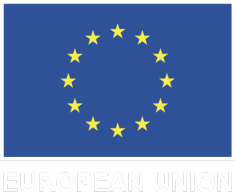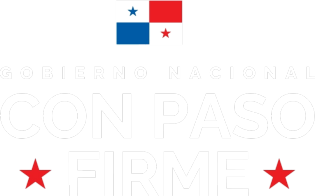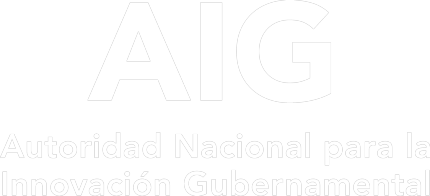At this year’s Living Planet Symposium (LPS25), one of the world’s premier events on Earth observation (EO) organised by the European Space Agency (ESA), CopernicusLAC Panama Centre was spotlighted for its significant role in advancing Earth observation solutions across Latin America and the Caribbean (LAC) region. During a session focused on innovation and collaboration, the initiative demonstrated its commitment to fostering a robust regional ecosystem, bringing together key stakeholders from government agencies, research communities, and civil society.
Key highlights from the session included a presentation of CopernicusLAC’s activities which aim to:
- Support stakeholders: by providing targeted engagement and training, the Centre has been integral in building the capacity of diverse actors within the Earth observation sector.
- Translate local challenges into operational services: The Centre’s services and applications tackle pressing regional issues such as disaster risk management, environmental monitoring, and urban resilience, turning local challenges into actionable solutions.
- Strengthening global partnerships: The Centre plays a key role in connecting European EO capabilities to the region’s priorities. Through co-designed services and strategic policy alignment, the Centre helps create a sustainable bridge between Europe and LAC, facilitating shared objectives under the EU’s Global Gateway strategy, the EU-LAC Digital Alliance, the Sustainable Development Goals (SDGs), and the Paris Agreement.
The presentation also introduced the CopernicusLAC Services Development Project, which focuses on co-developing EO services with users to ensure ownership, build capacity, and support long-term adoption. The methodology includes user engagement, training, code transfer, and the deployment of services on a user-friendly platform with dual processing environments.
Two ongoing success cases were highlighted:
- Colombia: Collaboration with national institutions to integrate services into disaster workflows.
- Barbados: On-premises deployment, validating decentralised hydromet services and demonstrating regional scalability.
In addition to the general presentation of the Centre, the following posters were presented by the Services Development team (posters will be available to download soon):
Poster 1: CopernicusLAC, Comprehensive Wildifre Management Through Earth Observation in Latin America and the Caribbean.
Poster 2: AI-Driven Landslide Susceptibility and Hazard Mapping for the CopernicusLAC Hub.
Looking ahead, the session showcased the critical role of international partnerships in scaling EO solutions globally. CopernicusLAC Panama Centre’s work continues to contribute to the regional initiatives, supporting a more resilient and sustainable future.

The same day, Claudia Herrera, Stakeholder Liaison Officer at CopernicusLAC Panama, participated in the “EO connects – Partnerships in Asia, Africa, and Latin America” panel at the 68th COPUOS (Committee on the Peaceful Uses of Outer Space) session in Vienna. Moderated by Dr. Benjamin Koetz of ESA, the discussion focused on the importance of collaboration between space agencies and stakeholders across these regions to address global challenges like climate change, disaster resilience, and sustainable development.
Key highlights included the significant role of industry partnerships, the EU Global Gateway initiative, and the need for institutional investment to ensure the long-term success and uptake of Copernicus services. Claudia Herrera also had the honour of exchanging views with Dr. Tidiane Ouattara, President of the African Space Agency, emphasising the importance of South-South collaboration and knowledge sharing.

About the CopernicusLAC Panama Centre
The activities of the Centre fall within the overall context of the EU-LAC Digital Alliance, which is a strategic framework to promote cooperation between the European Union (EU) and the Latin America and Caribbean (LAC) region on digital and space issues under the umbrella of the EU Global Gateway strategy. In this context, the European Space Agency (ESA) coordinates the implementation of the Centre on the basis of a Contribution Agreement with the Directorate General for International Partnerships (DG INTPA) of the European Commission, and in close collaboration with the Government of Panama, the MIRE (Ministry of Foreign Affairs) and the SENACYT (National Secretariat for Science, Technology and Innovation).
The CopernicusLAC Panama Centre will serve as a platform for innovation in the Latin America and Caribbean region, supporting national and local entities in leveraging Copernicus data and information to enhance socio-economic benefits and resilience. The Centre provides opportunities for engagement and is developing tailor-made Services (addressing hydrometeorological hazards, geological hazards and risk exposure services), which are developed in close collaboration with local users and stakeholders, to whom they will be delivered to ensure that the unique needs of the region are addressed in the long term.
In addition, knowledge and skills transfer is a key element of the CopernicusLAC Panama Centre, which hosts a Digital Campus with access to training modules and educational resources for technical users and citizens alike. The Centre will also organise community-building events, policy dialogues and industry matchmaking, as well as hackathons and other Earth observation (EO) data challenges to stimulate user adoption of Copernicus data and innovation. These events will also foster cross-collaboration of EO, Disaster Risk Reduction (DRR) and other relevant ecosystems.
Finally, the Centre will include the development of high-powered infrastructure and cloud computing for the LAC region. One of the ultimate objectives of the Centre is also to promote the development of communities of practice and strengthen capacities in the public sector, academia, the private sector and within social organisations in the knowledge and use of EO tools for DRR and other areas.





